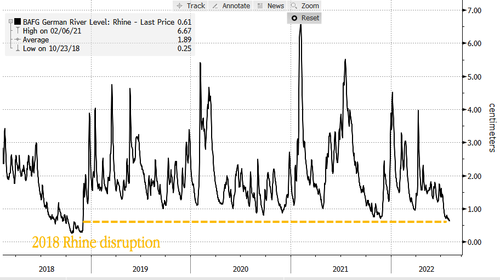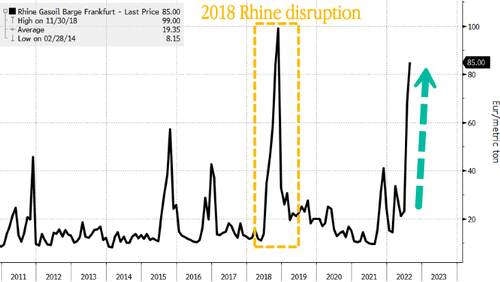SOURCE:
Water levels on the Rhine River have fallen so low that barges hauling energy products have encountered parts of Europe's most crucial waterway impassible.
The river at Kaub, Germany, is around 23.6 inches (60 centimeters) on Wednesday and is expected to drop to 18.5 inches (47 centimeters) by Saturday, according to the German Federal Waterways and Shipping Administration. That would take it within 2.5 inches (7 centimeters) from being entirely impassable by barge.
"Fewer and fewer barges can pass through Kaub," Riverlake, a vessel broker, said, referring to vessels with oil product cargos.
An impassible river at Kaub could exacerbate Germany's worst energy-supply crunch in decades as Russia reduces natural gas flows via Nord Stream 1 to just 20% capacity.
It would paralyze the movement of energy products to chemicals and cripple Europe's largest manufacturing hub, which is already sliding into recession.
"Low water levels already restrict coal shipments because fewer ships are available, and the ones that are ready to use carry less cargo," energy supplier EnBW AG said in a statement.
"Shipment costs for coal are therefore increasing, which in turn inflates the costs of operating coal plants."
In response to recent sliding water levels, Riverlake recently said barges hauling goods between Upper Rhine and Rotterdam had reduced weight to about a third of capacity to improve the draft of vessels. Shrinking shipping capacity had sent barge costs soaring near record highs, last seen in 2018 when the waterway was shuttered due to low levels.
The risk here is the trade of huge quantities of commodities that would otherwise be used to stave off an economic crisis become logjammed on the Rhine as low water levels make certain parts impassible.

